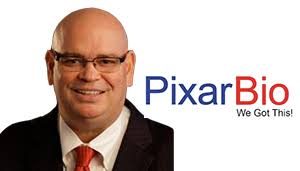Despite a reputation in tatters, a foundered biotech firm, and an impending guilty verdict, Frank Reynolds was still trying to convince US Senior District Judge Douglas Woodlock that his drug, NeuroRelease, still had value. His Honor voiced his skepticism about the defendant’s claims and sentenced the disgraced executive to 7 years in prison for defrauding investors of $7.5 million. Additionally, he is ordered to pay a $7.5 million fine, forfeit $280,000, and spend three years on supervised release.
“We have here an individual who doesn’t want to play by the same rules that everyone else does,” Woodlock said, who frequently referred to Reynold’s behavior as “grandiose” and “predatory” while delivering his judgment. He went on to say that Reynolds appeared to be “absolutely oblivious” to the damage he inflicted on his company’s 100+ investors.
Known as a Boston business leader with a big personality - he spoke in quick, energetic bursts. He had a gift for weaving personal story and sales pitch into one charismatic perspective that left investors wanting more. Reynolds was a former fellow with MIT Sloan School of Management and led a celebrated career as a senior executive in the biotech sphere until things appeared to start unraveling for the leader in 2013. He resigned suddenly from Cambridge-based InVivo Therapeutics in 2013 without notice, claiming health reasons, but went on to launch PixarBio three months later with two co-founders.
InVivo sued him that same year, alleging breaches of fiduciary duties, contract, conversion, misappropriation of corporate assets, unjust enrichment and corporate waste. In a strange twist, the former CEO announced in 2017 that his new company, PixarBio, was acquiring InVivo for half its current worth and would be renaming it after himself. Eight hours later, the Cambridge-based biotech issued its statement denying any deal was struck.
During the PixarBio court case, Reynolds initially claimed his company's new drug was a wunderkind painkiller that would eventually replace opioid-based painkillers. Despite being in preclinical trials, the chief executive told investors the drug would receive approval from the US Food & Drug Administration within two years. He also assured them the non-opioid pain reliever would replace morphine by the end of 2018 and solve the opioid crisis.
In presentations to his financial backers, Reynolds would often recall a personal story about healing himself from paralysis caused by a traffic accident and claimed NeuroRelease could do the same thing for patients. The complaint filed also described how Reynolds and the company's two co-founders misrepresented the facts about how far along the drug was in development.
Despite Reynolds insistence about his drug’s panacea-like properties, FDA stated that NeuroRelease was nothing more than an anticonvulsant commonly known as carbamazepine, readily available to the public in many forms. Evidence presented at trial revealed the Reynolds had made claims that NeuroRelease would end “thousands of years of morphine and opiate addiction.” In reality, however, the new drug wouldn’t address opiate addiction – the company had only developed a “new means of delivery in a time-release form for post-operative pain,” said prosecutors.
Federal authorities also alleged that Reynolds and his colleagues merged with a publicly-traded company to obfuscate the real value of the company and engaged in manipulative trading behavior and was worth relatively little. SEC suspended all trading activity after the agency launched a fraud investigation against the firm.























